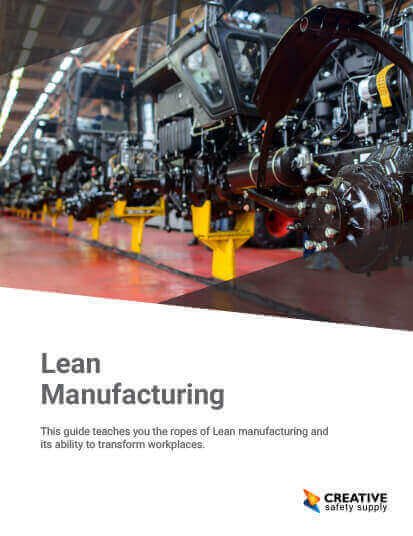
Developed by Toyota, 3M are three different types of waste that businesses can eliminate to become more “Lean”.
Muda refers to common manufacturing activities that do not create any value for the customer. The Toyota Production System originally identified seven kinds of muda, known as TIMWOOD:
- Transportation: Unnecessary movements of the product between processes results in this kind of waste. Facilities that aren’t laid out to be “Lean” for example typically group processes in different areas, meaning forklifts may have to transport a product more often than needed.
- Inventory: Whether it’s completed stock waiting to be sold or products currently in production—unnecessary inventory takes up necessary space and ends up costing you money.
- Motion: Unlike the kind of waste described for transportation, this refers to the waste of movement between processes. This can be seen in workers having to double-back to work stations or even machines needing to travel to reach the product.
- Waiting/Delays: If processes aren’t synchronized, idle time caused by machines, products, or people can quickly add up.
- Overproduction: Producing more product that what is actually demanded will leave you with excess work-in-progress and surplus stock.
- Overprocessing: Spending time and energy into a product than what is the customer is expecting—such as painting parts that will never be seen.
- Defects: Known as a kind of “tip of the iceberg” of wastes, costs associated with defects often hide beneath the surface—like the time spent producing the part, the energy to fix the defect, creating replacements, and more.
Mura means unevenness in operation. In manufacturing, unevenness is often caused by the peaks and valleys in customer demand. Trying to overcompensate for demand can mean your machines are being overburdened, excess inventory is being stored, or a higher rate of defects in the product. To combat unevenness, businesses can operate a Lean pull system and managers can eliminate mura through level scheduling.
Muri is a term used to describe an overburden—whether it’s overburdening equipment or operators by requiring them to run at a higher or harder pace with more force and effort for longer than the equipment is designed for and appropriate workforce management allows.
Muda, mura, and muri are all interconnected forms of Lean waste, and working to reduce one waste will in turn help eliminate the others.
Similar Questions
- What is Muda?
- How can Lean affect the supply chain?
- What is the goal of Lean?
- Is mass production considered Lean?
- What are the 7 (or 8) wastes of Lean manufacturing?
- What does Lean Manufacturing consist of?
- What is just-in-time (JIT) manufacturing?
- What is Lean manufacturing?
- What do the letters in the acronym DOWNTIME refer to in Lean Methodology?

